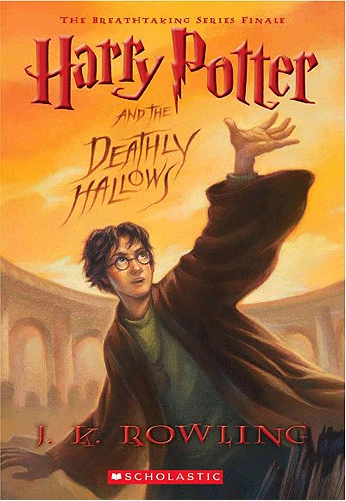
The true owner of an object is the creator
You don’t understand, Harry; nobody could understand unless they have lived with goblins. To a goblin, the rightful and true master of any object is the maker, not the purchaser. All goblin-made objects are, in goblin eyes, rightfully theirs.
J.K. Rowling often offers a new way for the world to work. In this case, a question on what it means to “own” something. Goblins believe that as the crafter of a piece of work, they are the one and only owners of the object, while all others are simply borrowing. Humans believe, by contrast, that all kinds of rights (ownership, responsibility, authority, emotional service, etc) can be paid for or signed away. We believe in change by agreement and that many things are temporary. We give ourselves some space to manipulate or get the better deal.
—–
No, I don’t think you’re like James, said Lupin, who would have regarded it as the height of dishonour to mistrust his friends.
This is one of the moments with an implicit message that trust is given, a part of being open to friendship and vulnerability. Trusting is honourable. This is in contrast to the belief that trust needs to be earned, built up over time, or deserved — a belief built on the idea that we must do everything we can to prevent ourselves from being hurt or made a fool of.
——
It was not, after all, so easy to die. Every second he breathed, the smell of the grass, the cool air on his face, was so precious: to think that people had years and years, time to waste, so much time it dragged, and he was clinging to each second.
In the final battle, Harry, with the pressure of duty and the support of his family, faces death. Despite his heroism and courage, he admits to a fear of death. In that moment, he appreciates the little details. Implicitly, comments on how we who are not about to die take life for granted, letting it drag or criticising how life drags. He reminds us to also notice our breath, scent, and cool brush of wind.
——-
P.S. Here are two other moments I liked:
This first is a question that McGonagall answers to get into the Ravenclaw dorm (the dorm for students whose greatest strengths are wit and intelligence):
Where do vanished objects go” into nonbeing, which is to say, everything.
This second is from Dudley to Harry, before Harry leaves his cousin’s house forever. Dudley had bullied and been frightened of Harry for the whole series, but they end on a note of gratitude and vulnerability:
I don’t think you’re a waste of space. You saved by life.